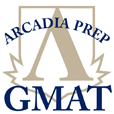A hat contains 15 marbles, and each marble is numbered with one and only ... ...
Replies to This Thread: 0
|
----
Posted: 04/08/2012 14:31
Where did the eleven come from? What does "numbered people number marble" mean?
Replies to This Thread: 0
|
----
Posted: 04/12/2012 18:09
I have the same question as above.

Admin
Replies to This Thread: 0
|
----
Posted: 04/16/2012 14:33
Hi guys. There is a formatting error on our part. There should have been a table with the headings "Numbered Marble": 1,2,3. And for each numbered marble, the "Number of People who Selected the Numbered Marble" is consecutively: 4,5,6.
Our apologies for your confusion.
Replies to This Thread: 0
|
----
Posted: 08/08/2012 00:48
Your chart does not change the probability. Just because 11 of the 15 people in your example selected a 2 or a 3 doesn't mean that is the probability of multiple random drawings. The answer is 10/15.
Replies to This Thread: 0
|
----
Posted: 08/08/2012 00:56
Nevermind. That only applies assuming the same number of each type of marble.
Replies to This Thread: 0
|
----
Posted: 09/19/2012 17:35
5+6=11
Replies to This Thread: 1
|
----
A hat contains 15 marbles, and each marble is numbered with one and only ... ...
Posted: 02/02/2014 07:49
I think the question should specify wether the marbles were selected with replacement or not. And, if not with replacement (most likely scenario, as otherwise column 2 would not add up to 15 in most samples), it should ask for the probability of the first person selecting a 2 or a 3 (as opposed to any of the subsequent 14 persons)

Contributor
Reply 1 of 1
Replies to This Thread: 0
|
----
Posted: 02/04/2014 11:16
Daniel, as you pointed out, it is implied in the problem that the marbles were not replaced, otherwise the chart's column 2 would not have added up to 15.
Anyway, we can ignore the hat and the marbles, since the question really asks (rephrased): "Suppose we have 15 people who each holds a number (either 1, 2, or 3) according to the following chart. If we pick 1 person at random from the group, what is the probability she or he will have a number 2 or 3?"











